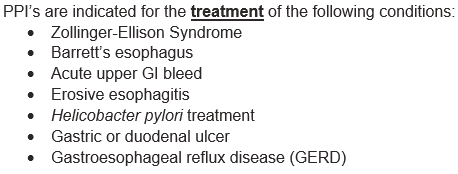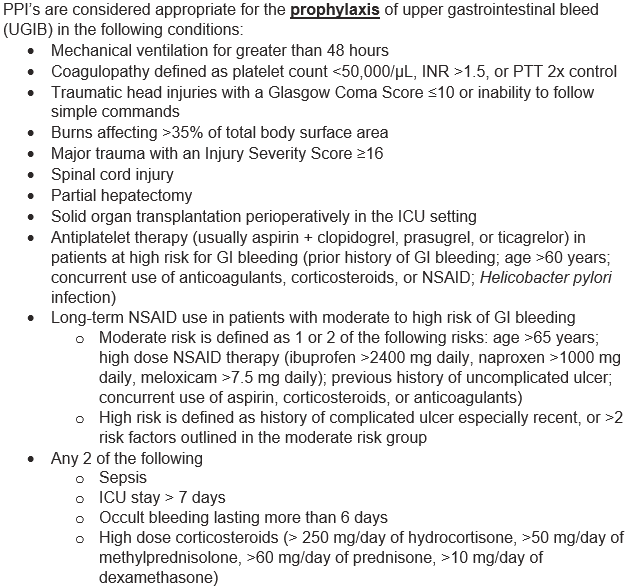Guidance for the Use of Proton Pump Inhibitors

Proton pump inhibitors (PPI’s) are one of the most commonly used classes of drugs, due in part to their presumed safety and tolerability. These drugs work by blocking gastric acid secretion, giving them a vital role in the management of acid-related disorders such as Zollinger-Ellison Syndrome or erosive esophagitis. As PPI use has continued to increase over the years, more evidence has come out about potential adverse effects associated with long-term use. Based on this evidence, the FDA released a safety announcement in 2012 regarding a possible increased risk of Clostridioides difficile-associated diarrhea (CDAD) with the use of PPI’s.
Clostridioides difficile infection (CDI) is a major public health issue and is consistently listed as an urgent threat by the Centers for Disease Control and Prevention (CDC), making it the focus of numerous case reduction initiatives across the nation. While the most vital preventative measures include appropriate hand hygiene, environmental disinfection, contact precautions, and isolation, supplementary measures such as reduction of the use of drugs with increased risk for CDI also play a large role in prevention efforts. The most common method of accomplishing this is through the creation and implementation of a robust antimicrobial stewardship program to reduce the use of high-risk antibiotics such as fluoroquinolones, clindamycin, and carbapenems.
In addition to focusing on antibiotic use, there exists a great opportunity for the assessment of PPI use in both the inpatient and outpatient settings. Because PPI’s are so frequently used inappropriately, evaluation of their indication, dosing, and duration are essential to ensuring appropriate use. To help implement this process, Nebraska ASAP has released a guidance document created by Phil Chung highlighting criteria for the appropriate use of PPI’s for both treatment and prophylaxis. These criteria are listed below and can be found with more detail in the full document.


Because of the association between PPI’s and CDI relapse, patients with CDI who are receiving PPI’s should have their use evaluated, and the PPI should be discontinued if possible. If acid suppression is needed even in the setting of CDI, consider a change to an H2 receptor antagonist if appropriate.
CDI is a major public health concern, and only through continued efforts on multiple fronts, including assessment of medication regimens, will rates decrease.
The full guidance document can be found below, as well as on the Guidance Document tabs for Acute Care and Long-Term Care.
Guidance on Appropriate PPI Use
 This content was provided by Andrew B. Watkins, Pharmacy Coordinator of Nebraska ASAP. Feel free to send any questions to anwatkins@nebraskamed.com.
This content was provided by Andrew B. Watkins, Pharmacy Coordinator of Nebraska ASAP. Feel free to send any questions to anwatkins@nebraskamed.com.



